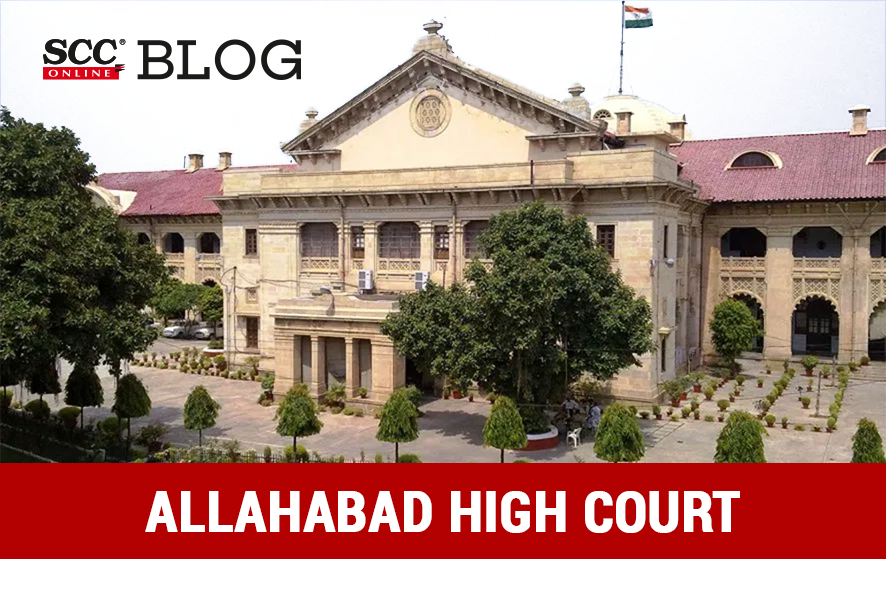Allahabad High Court: In a writ petition seeking quashing of the First Information Report (‘FIR’) for the offences under Sections 420, 467, 468, 506, 120-B of the Penal Code, 1860 (‘IPC’) and Section 3 read with Section 5(1) of U.P. Prohibition of Unlawful Conversion of Religion Act, the division bench of Anjani Kumar Mishra and Gajendra Kumar, JJ. held that the impugned FIR in the instant writ petition is lodged by a competent person and contains ingredients of a cognizable offence. Thus, it is not liable to be quashed.
The petitioners contended that the incident regarding which the impugned FIR has been lodged is of 14-04-2022. Earlier in time, another FIR on almost identical allegations had been lodged on 15-04-2022 for offences under Sections 153-A, 420, 467, 468, and 506 IPC and Section 3 read with Section 5(1) of U.P. Prohibition of Unlawful Conversion of Religion Act, 2021.
Further, the petitioners contended that the impugned FIR is barred by Sections 154 and 158 of the Code of Criminal Procedure, 1973 and in view of the law laid down in T.T. Antony v. State of Kerala, (2001) 6 SCC 181., wherein it was held that there can be no second FIR and no fresh investigation on receipt of every subsequent information in respect of the same cognizable offence or same occurrence giving rise to one or more cognizable offences.
The Court noted that only material difference in the two FIR’s is that the first FIR was lodged by an office bearer of the Vishwa Hindu Parishad while the impugned FIR has been lodged by the informant, who underwent religion conversion allegedly on account of fraud, misrepresentation, coercion and inducements.
The issue for consideration is whether on account of the aforenoted difference, the FIR impugned in this writ petition goes out of purview of the ratio in the T.T. Anthony(supra).
The Court took note of Sections 3, 4, 5, 7 and 8 of the U.P. Prohibition of Religions Conversion Act. Further, it said that the material allegations in the FIR are pertained to the same mass conversion ceremony of the same date. Therefore, there is no substantial difference in so far as the allegations in the two FIRs are concerned, and if this aspect alone is taken into account, the matter at hand is covered by the ratio in the case of T.T. Anthony’s (supra).
The Court said the embargo under Section 4 as to who can lodge an FIR regarding an offence under Section 3 of the Act is absolute. The impugned FIR has been lodged by the person, who claims to be a victim of conversion obtained by misrepresentation, coercion and allurement, and as per Section 4(e) is the person competent to lodge the FIR.
Thus, the Court held that the impugned FIR in the instant writ petition is lodged by a competent person and contains ingredients of a cognizable offence. Thus, it is not liable to be quashed.
The various categories of person enumerated in Section 4, who are competent to lodge the FIR are “any aggrieved person”. The words “any aggrieved person” at the very start of the said Section can be interpreted to mean any person, especially since there is no provision under the IPC or CrPC, which bars or prohibits any person from lodging an FIR regarding cognizable offence.
However, the Court opined that the words “any aggrieved person” is qualified by the subsequent categories and the words his, her parents, brother, sisters or blood relations by marriage and adoption included. Therefore, the words “any aggrieved person”, if taken by themselves are extremely wide. The scope of the said term is completely whittled down by subsequent categories and therefore, any aggrieved person would be a person, but is personally aggrieved by his or her fraudulent conversion be it an individual or in a mass conversion ceremony. Any interpretation to the contrary would render the remainder of Section 4 after the words “any aggrieved person” wholly redundant and render the Section itself completely meaningless. Thus, it was held that the FIR dated 15-04-2022 was not lodged by a competent person and of no consequence. Therefore, it cannot be said that there are two separate FIR’s of the same incident. Hence, the case at hand is not covered by the ratio in T.T. Anthony (supra).
[Jose Prakash George v State of UP, 2023 SCC OnLine All 54, decided on 17-02-2023]
Advocates who appeared in this case :
Counsel for Petitioner: Senior Advocate Sagar Mehrotra;
Counsel for Respondent: Government Advocate.
*Apoorva Goel, Editorial Assistant has reported this brief.







